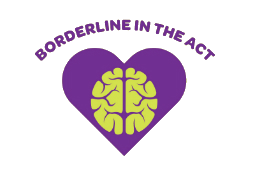- Mark Discussion as New
- Mark Discussion as Read
- Float this Discussion for Current User
- Favourite
- Subscribe
- Printer Friendly Page
- Mark as New
- Favourite
- Subscribe
- Get link
- Flag for Moderator
26-02-2019 08:21 PM
26-02-2019 08:21 PM
Re: Topic Tuesday // Exploring Compassion Fatigue // Tues 26 Feb, 7pm AEDT
We have spoken a bit about what CF and burnout are and there have been some questions around how we can tell the difference between the 2 expereinces in terms of signs to be aware of. So to make it easy for you to identify the signs of these experiences, let’s take a look at the them a bit more. This summary of signs to look out for may be helpful and is something you can keep somewhere safe and refer back to throughout your time as carer.
Compassion fatigue signs:
- Physical or emotional exhaustion (or both)
- Reduced feelings of sympathy or empathy
- Dreading carer tasks and caring for someone and feeling guilt about this
- Feeling irritable, angry, or anxious
- Headaches
- Difficulty sleeping
- Feeling disconnected
- Withdrawing socially
- Reduced sense of accomplishment or meaning in caregiving
- Trouble making decisions
Burnout signs:
- Physical exhaustion, where you feel tired most of the time and may even feel as though you are not able to complete tasks to the same standard you once did
- Changes in appetite, either eating for comfort or losing your appetite all together
- Changes in sleeping patterns
- Frequent headaches and tension
- Lowered immunity resulting in frequent sickness
- Loss of motivation
- Feeling helpless
- Increased cynicism and negative view of current situation
- Decreased satisfaction or sense of accomplishment
- Feeling a sense of guilt or shame, or doubting your skills and ability to assist the person you care for
- Social withdrawal
- Procrastination
- Mark as New
- Favourite
- Subscribe
- Get link
- Flag for Moderator
26-02-2019 08:24 PM
26-02-2019 08:24 PM
Re: Topic Tuesday // Exploring Compassion Fatigue // Tues 26 Feb, 7pm AEDT
@Volcanogirl (great choice in name! 🙂) I can so relate to that! Often I hear something, usually the word 'mum' (said like muuuuuuum) or my phone ringing and think 'ugh - now who wants me?! 😏'
- Mark as New
- Favourite
- Subscribe
- Get link
- Flag for Moderator
26-02-2019 08:26 PM
26-02-2019 08:26 PM
Re: Topic Tuesday // Exploring Compassion Fatigue // Tues 26 Feb, 7pm AEDT
Given these signs:
What are some of the things that you notice when you are starting to feel the effects of compassion fatigue?
How can you tune in more to these signs to be able to act on them quickly? These can be either things that you have used in the past or something you might like to try.
Then we will be moving onto ways to manage the signs of CF & burnout
- Mark as New
- Favourite
- Subscribe
- Get link
- Flag for Moderator
26-02-2019 08:31 PM
26-02-2019 08:31 PM
Re: Topic Tuesday // Exploring Compassion Fatigue // Tues 26 Feb, 7pm AEDT
- Mark as New
- Favourite
- Subscribe
- Get link
- Flag for Moderator
26-02-2019 08:36 PM
26-02-2019 08:36 PM
Re: Topic Tuesday // Exploring Compassion Fatigue // Tues 26 Feb, 7pm AEDT
I think feeling drained is one of the first signs of compassion fatigue but it is nearly always there because as carers we simply don't get the breaks we need. One of the things I miss most as a carer is having weekends off (like with a regular job). I saw a great meme once where it said something like: You need to do some self care: take a bath, go for a walk etc etc and the end it said NO! TAKE OVER AND GIVE ME A BREAK SO I CAN! I totally related to it as the ONLY way I get out of this state for me is to have frequent, consecutive days off - at least 3 days - where I have no contact with my caring role at all. I made a point of having a long holiday (using respite) and found it would take me up to week 4 out of 5 before I was smilling and laughing again, finally feeling free. Hence I found a decent break was the only way to get back to being myself.
- Mark as New
- Favourite
- Subscribe
- Get link
- Flag for Moderator
26-02-2019 08:37 PM
26-02-2019 08:37 PM
Re: Topic Tuesday // Exploring Compassion Fatigue // Tues 26 Feb, 7pm AEDT
@Faith-and-Hope in relation to your question, some of the symptoms can manifest physically into psychosomatic symptoms particualrly with burnout. Sometimes when we put our own needs aside for long enough and our bodies want us to give them some "time out" it can manifest physically. Also given experiencing anxiety can be common with both CF & burnout, we can often see the symptoms of this by way of tension headaches, fatigue, etc.
I hope this helps to answer your question ![]()
- Mark as New
- Favourite
- Subscribe
- Get link
- Flag for Moderator
26-02-2019 08:39 PM
26-02-2019 08:39 PM
Re: Topic Tuesday // Exploring Compassion Fatigue // Tues 26 Feb, 7pm AEDT
I think I notice the signs, usually things like feeling really tired (exhausted probably), dreading the day ahead or dreading things like meeting up with my friend, and those 'switch offs' but it is knowing what to do with them that is a bit more of a struggle for me.
- Mark as New
- Favourite
- Subscribe
- Get link
- Flag for Moderator
26-02-2019 08:40 PM
26-02-2019 08:40 PM
Re: Topic Tuesday // Exploring Compassion Fatigue // Tues 26 Feb, 7pm AEDT
@Volcanogirl, Husband and I were talking with our psychologist today about the difficulty of getting a respite break. We'd need to know our daughter was somewhere safe first. No good heading off for a break and being called back for a crisis. She has had private psych clinic stays, but even then she's needed significant support from us in the form of visits and phonecalls.
- Mark as New
- Favourite
- Subscribe
- Get link
- Flag for Moderator
26-02-2019 08:46 PM
26-02-2019 08:46 PM
Re: Topic Tuesday // Exploring Compassion Fatigue // Tues 26 Feb, 7pm AEDT
Absolutely @Volcanogirl, I agree in that what really helps is to take a break from the caring. In saying this I am aware that this is not possible for everyone and we all have different cicumstances. If there is a way to get this time away from the caring role I do encourage this if you are feeling the effects of CF & burnout.
Let's discuss some more strategies in case taking a break and stepping away from the caring role is not possible.
- Mark as New
- Favourite
- Subscribe
- Get link
- Flag for Moderator
26-02-2019 08:49 PM
26-02-2019 08:49 PM
Re: Topic Tuesday // Exploring Compassion Fatigue // Tues 26 Feb, 7pm AEDT
@Former-Member, I commented about a lot of my choices having to be put aside. One me-thing I've held on to is gardening, although you've only got to look at the weeds to see that's been slipping too. It's something I want to re-prioritise, because it does me good being outside where I can see and hear birds and other wildlife.
If you need urgent assistance, see Need help now
For mental health information, support, and referrals, contact SANE Support Services
SANE Forums is published by SANE with funding from the Australian Government Department of Health
SANE - ABN 92 006 533 606
PO Box 1226, Carlton VIC 3053

